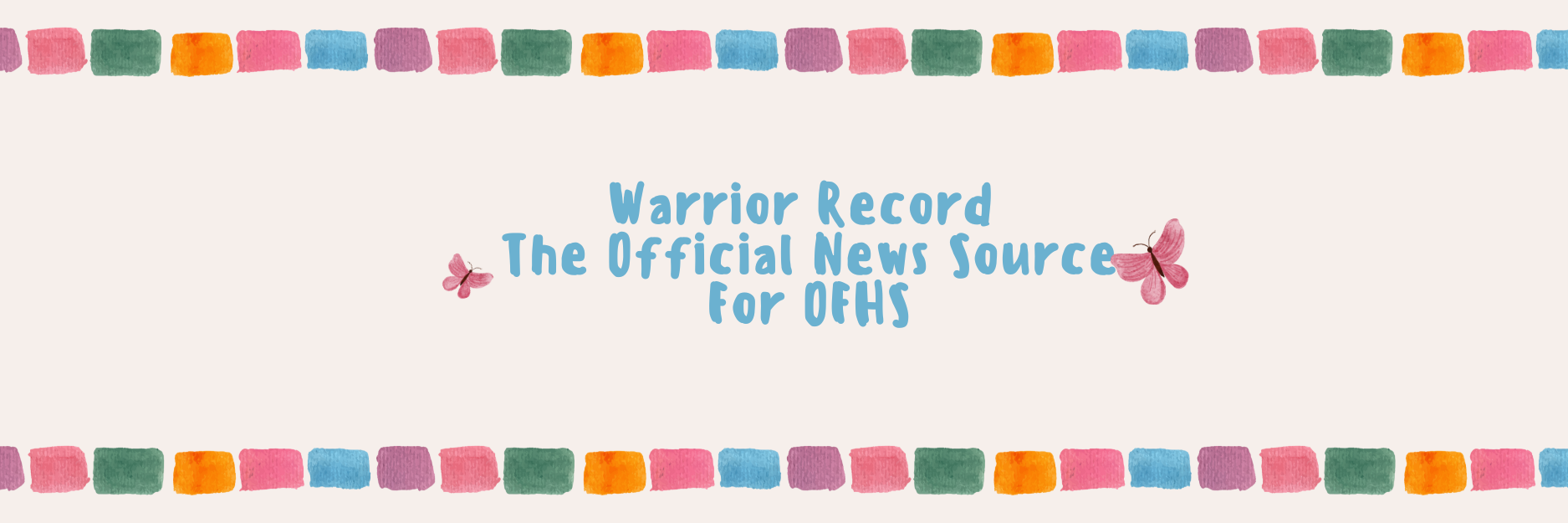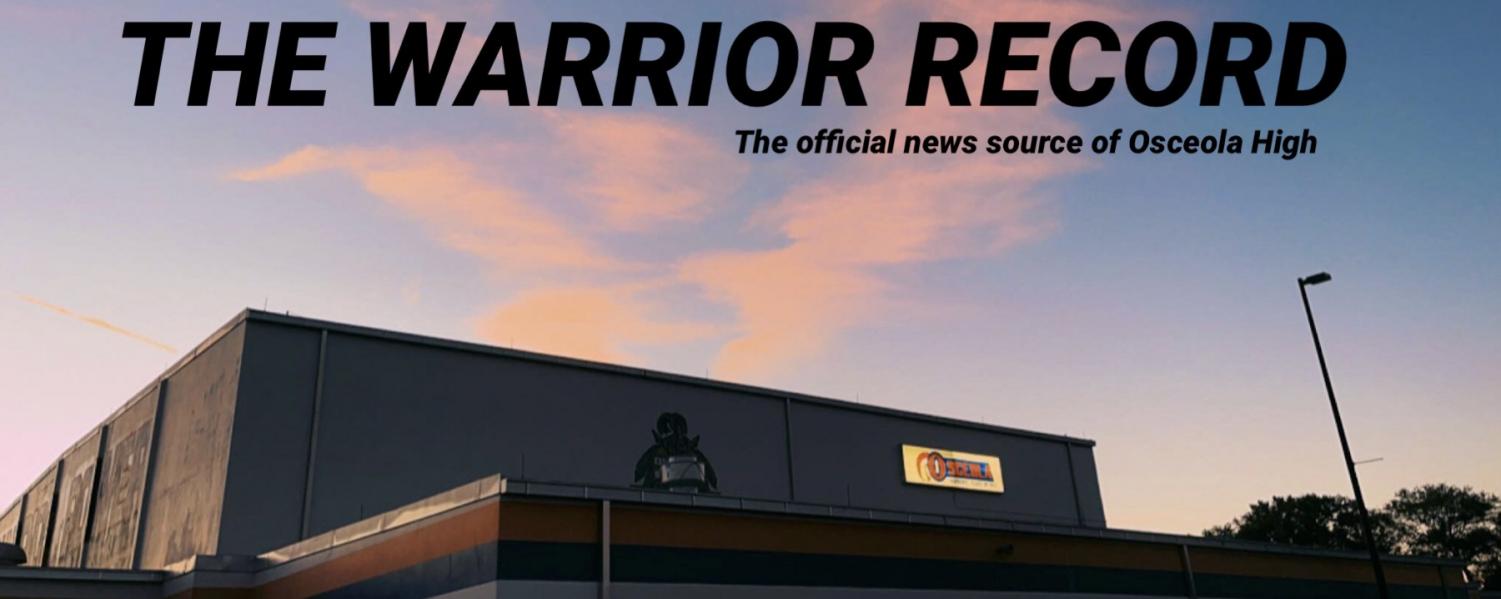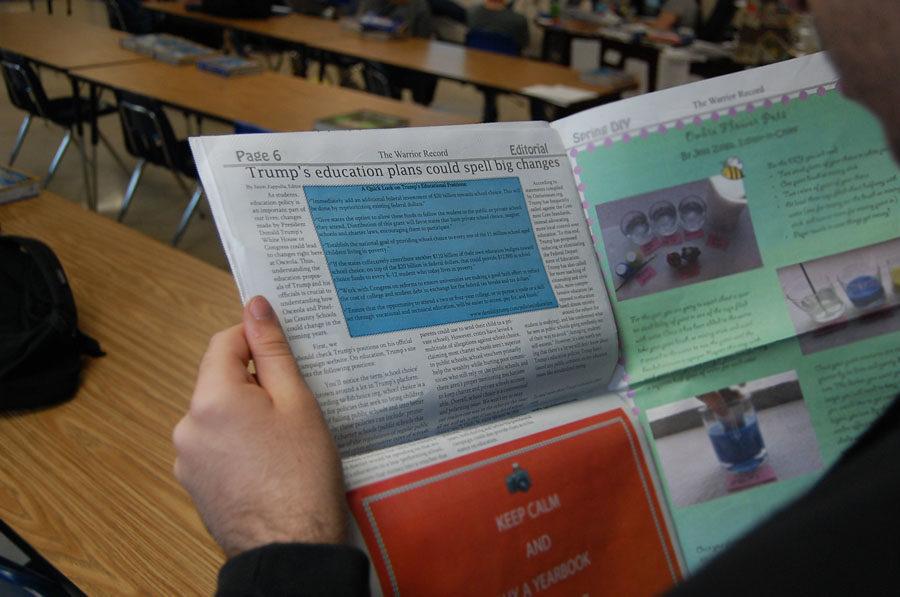Trump’s education plans could spell big changes
February 27, 2017
As students, education policy is an important part of our lives; changes made by President Donald Trump’s White House or Congress could lead to changes right here at Osceola. Thus, understanding the education proposals of Trump and his officials is crucial to understanding how Osceola and Pinellas County Schools could change in the coming years.
- “Immediately add an additional federal investment of $20 billion towards school choice. This will be done by reprioritizing existing federal dollars.”
- “Give states the option to allow these funds to follow the student to the public or private school they attend. Distribution of this grant will favor states that have private school choice, magnet schools and charter laws, encouraging them to participate.”
- “Establish the national goal of providing school choice to every one of the 11 million school aged children living in poverty.”
- “If the states collectively contribute another $110 billion of their own education budgets toward school choice, on top of the $20 billion in federal dollars, that could provide $12,000 in school choice funds to every K-12 student who today lives in poverty.”
- “Work with Congress on reforms to ensure universities are making a good faith effort to reduce the cost of college and student debt in exchange for the federal tax breaks and tax dollars.”
- “Ensure that the opportunity to attend a two or four-year college, or to pursue a trade or a skill set through vocational and technical education, will be easier to access, pay for, and finish.”
You’ll notice the term ‘school choice’ is thrown around a lot in Trump’s platform. According to Edchoice.org, school choice is a term for policies that seek to bring children out of failing public schools and into better schools; these policies can include: promotion of charter schools (public schools that lack some of the regulations of regular public schools) and other alternative types of schools, and the use of school vouchers (which are taxpayer-funded vouchers that takes the money a school district would be spending on that student’s education in a low-performing school, and converts that money into a voucher that parents could use to send their child to a private school). However, critics have levied a multitude of allegations against school choice, claiming that: most charter schools aren’t superior to public schools, school vouchers primarily help the wealthy while hurting poor communities who still rely on the public schools, and there aren’t proper monitoring mechanisms to keep charter and private schools accountable, among other things. Overall, school choice is a controversial and polarized issue, and we won’t try to sway our readers one way or the other on this issue: all we will say is that if you’re a fan of school choice, you’ll likely by quite pleased by this platform.
Trump’s statements throughout the years, both during and before his presidential campaign, could also provide clues as to his stance on education. According to statements compiled by Ontheissues.org, Trump has frequently railed against the Common Core Standards, instead advocating more local control over education. To this end, Trump has proposed reducing or eliminating the Federal Department of Education. Trump has also called for more teaching of citizenship and civic skills, more comprehensive education (as opposed to education based almost entirely around the subject the student is studying), and has condemned what he sees as public schools going needlessly out of their way to avoid “[damaging] students’ self-esteem.” However, it’s also worth noting that there’s a lot we still don’t know about Trump’s education policies: not only does Trump have a history of contradicting himself and changing his stances, but Trump hasn’t issued any public comment on key education issues like standardized testing.
If Trump’s statements only give us some clues as to what might come next, perhaps we can glean more hints from Betsy DeVos, Trump’s Secretary of Education nominee. Like Trump, DeVos favors school choice, and she has advocated in favor of policies like school choice and school vouchers. DeVos had a confirmation hearing before the U.S. Senate on January 17, but as The Atlantic reported, DeVos gave unusual answers on key issues like guns in schools and students with disabilities, and other issues like standardized testing and Common Core weren’t even mentioned at all.
Overall, we do have some indication of what schools might look like under a Trump presidency: more charter schools, more private schools, and more local control of education. However, there’s still a lot we don’t know. Sadly, this is just a symptom of an election heavy on rhetoric and low on policy discussion: even something as important as our children’s education seems to be an afterthought in the wake of an election based more on personal behavior and scandals. With Trump now President, and DeVos slated to be Education Secretary, we need to hold them accountable and ensure that whatever they do, they do it with students’ best interests in mind, and not the interests of ideology and money.
Sources:
https://www.donaldjtrump.com/
https://www.donaldjtrump.com/policies/education/
https://www.edchoice.org/school-choice/types-of-school-choice/
http://www.salon.com/2012/01/24/the_ugly_truth_about_school_choice/
http://education.stateuniversity.com/pages/2341/Public-Education-Criticism.html
http://www.ontheissues.org/2016/Donald_Trump_Education.htm
http://www.politico.com/magazine/story/2016/05/donald-trump-2016-contradictions-213869
https://www.wired.com/2017/01/timeline-trumps-strange-contradictory-statements-russian-hacking/
http://www.ocregister.com/articles/trump-739841-president-katz.html
https://www.theatlantic.com/education/archive/2017/01/betsy-devoss-policy-evasion/513440/
http://www.politico.com/magazine/story/2016/08/does-anyone-care-about-issues-anymore-or-only-whether-trump-is-crazy-214150






